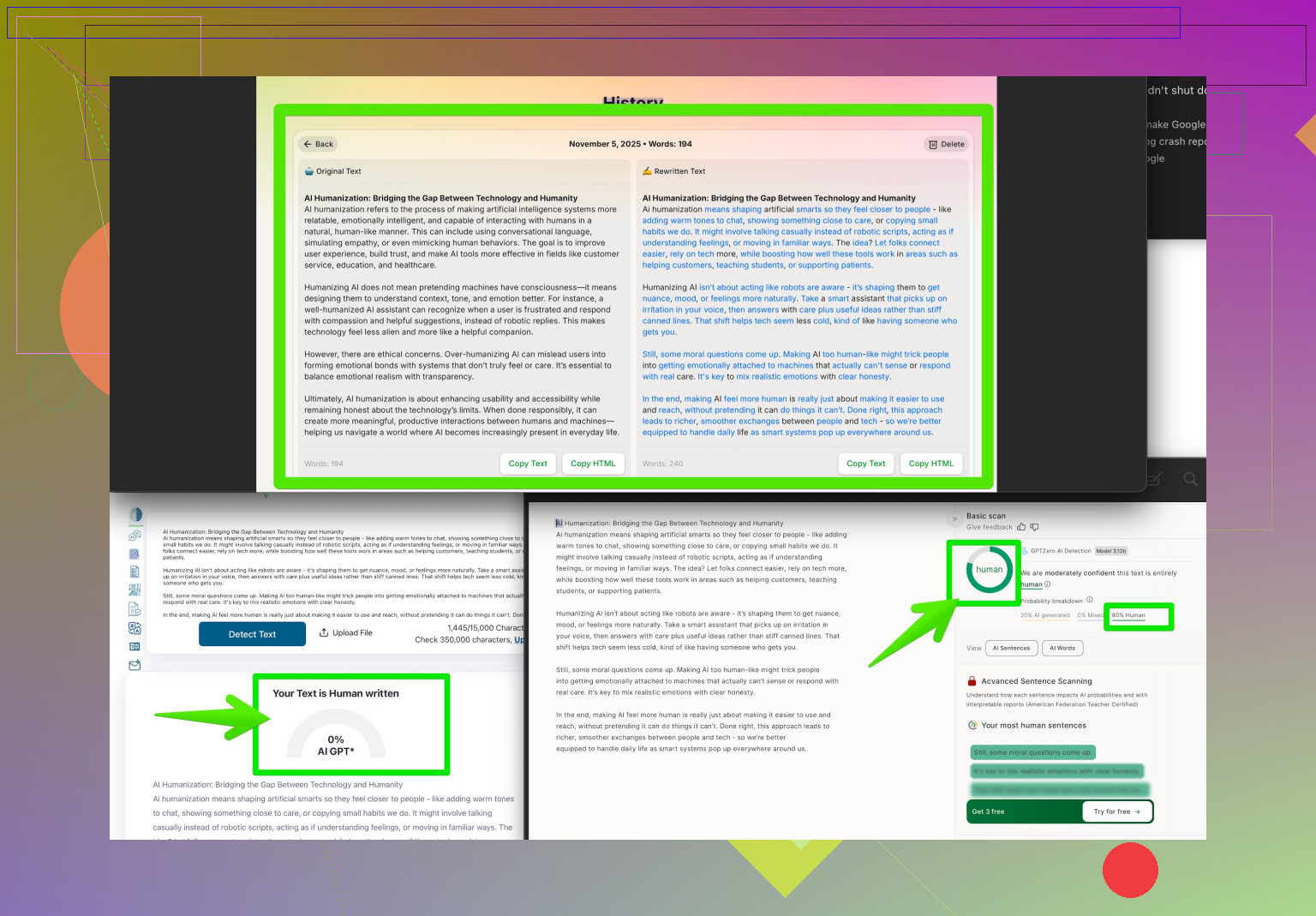I need to know if Turnitin can detect AI-generated content since my professor wants us to avoid using AI tools for our assignments. I’m worried my paper might get flagged. Can anyone share their experience or explain how Turnitin’s AI checker works?
Yep, Turnitin rolled out an AI detection tool last year because so many students started using ChatGPT and tools like that. But here’s the twist: their “AI writing detection” isn’t perfect at all. First off, it mainly flags stuff that sounds super formal, repetitive, or, ironically, too flawless. So, if your essay is way better than your usual work, and reads kinda robotic, there’s a chance Turnitin’s algorithm might flag it as AI-generated.
I’ve seen cases in my class group where Turnitin flagged papers even when they just used Grammarly for editing, which means it’s not just catching “AI-written” content, but sometimes also picks up on heavy editing or really polished text. Sometimes, human-written stuff gets flagged and vice versa. Professors still review the report, so it’s not an auto-zero if something’s flagged—just means extra scrutiny.
If you’re anxious about accidental flags (especially if you’ve used ANY tools at all), there are “AI Humanizer” platforms that rewrite your text to sound more natural and less like a bot—making it tougher for Turnitin to tag your paper as AI. One worth checking out is make your essay undetectable by AI detectors. It’s gotten decent feedback for helping papers pass both plagiarism AND AI checks.
Bottom line: Turnitin can detect some AI content, but its accuracy is… meh. It’s better if you genuinely write your own stuff, but if you’re worried about the detector being kinda trash at its job, try using something like Clever AI Humanizer to smooth things out before submission. Don’t just copy-paste from ChatGPT; mix it up, add personal insights, and you’ll be safer.
Turnitin 100% has an AI content checker now (it’s plastered all over their site lol), but don’t freak out too much. It’s definitely NOT as advanced or “all-knowing” as some folks make it sound. From what I’ve seen (and heard from classmates), Turnitin’s AI detection can be hyper-sensitive—sometimes it’ll flag your essay because you just proofread too well or reworded a few chunks like a normal student who actually cares about grammar. And yeah, as @andarilhonoturno mentioned, those slick tools like Grammarly can also weirdly trip it up. My friend got flagged because she swapped in a bunch of stronger transition phrases…no AI, just over-editing!
Tbh, I think professors know the tool is hit-or-miss. If your writing suddenly gets a glow-up or feels robotic, it might get flagged for “AI-like” content, but AI detectors are absolutely NOT bulletproof. There’s no uncrackable secret formula—the best bet is to mix your own ideas, throw in some personal stories or analysis, and don’t just rely on straight ChatGPT output. If you’re worried about the tech going haywire and flagging innocent work, using something like Clever AI Humanizer can literally help make sure your writing sounds more like you and less like an emotionless bot.
But honestly? Instead of obsessing over beating the detector, I’d focus on doing your own writing, using AI or editors in small chunks at most, and saving drafts in case you need to prove it’s your genuine work. If you wanna see more ways people try to “humanize” their writing (and what actually works), you can check out Reddit threads like Redditors share practical strategies to make AI writing sound human.
Long story short: Turnitin does have an AI checker, but it’s far from perfect. Don’t stress too much if you haven’t gone full robot with your essays. If you want an extra safety net, Clever AI Humanizer is worth a try. But your best defense? Write naturally, don’t copy-paste, and toss in your own voice and experiences, even if that makes your paper a little less “perfect.”
Let’s break it down with some real talk and practical tips:
Turnitin’s AI content detector is absolutely in the mix now—no question. Both previous posters nailed the key issues: it’s there, but the detection tech is far from foolproof. It’ll sometimes flag legit, well-edited student work, especially if your writing style jumps dramatically or you go “full grammarian.” I’ve also heard of it flagging stuff that was only lightly touched up by things like Grammarly—so don’t assume you’re in the clear just because you didn’t use ChatGPT or similar tools.
Now, about strategies: You’ve read about those “humanizer” platforms, and Clever AI Humanizer keeps coming up for good reason. It’s designed to tweak your AI-generated or over-edited content to sound more like an actual person (less like a robot with a thesaurus). Pros: it’s quick, lets you keep your main ideas, and can help you get past overly sensitive detectors. Cons: you absolutely still need to review the changes—it can sometimes over-casualize your writing, and certain subject-specific phrasing might get warped. Don’t just blindly trust it.
But don’t forget, there are alternatives out there—not just the two mentioned by the other posters. Tools like Undetectable or Quillbot can do similar rewrites, but each has quirks and none are 100% effective against every update Turnitin makes.
My extra tip? Save every draft and change. That way, if you ever get flagged, you can show a clear progression of your work—nobody can argue with receipts. Also, if you’re prone to getting a little too formal, pepper in some unique phrases or personal references. AI is bad at this, so it keeps your style distinct and less robot-like.
Bottom line: Don’t stress too hard if you’ve just brushed up your paper. If you used ChatGPT, run it through something like Clever AI Humanizer as added insurance—but always double edit for meaning and your own voice. Not a magic wand, but for now, it’s a practical safety net while the tech arms race continues between student tools and detection bots!
